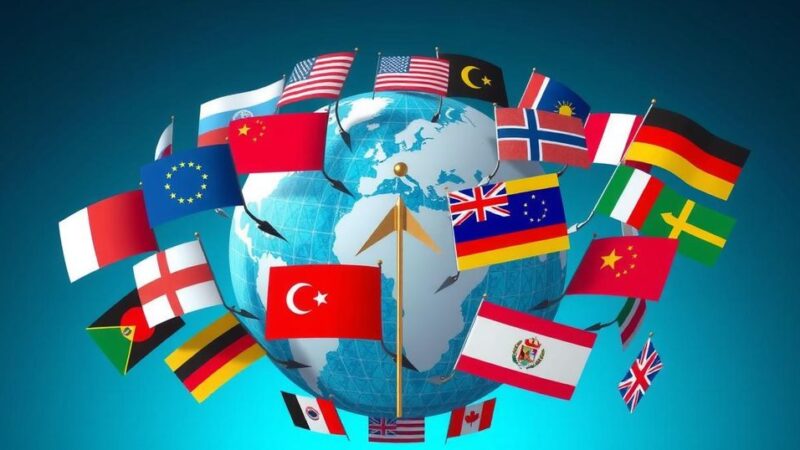Marco Rubio declared South African Ambassador Ebrahim Rasool persona non grata after comments linking the MAGA movement to white supremacist sentiments. South Africa’s government expressed regret over the decision, emphasizing diplomatic relations. Rasool’s remarks reflect broader discussions on race and extremism in the U.S. and South Africa’s apartheid legacy.
On March 14, 2025, Marco Rubio, the Trump administration’s Secretary of State, declared South African Ambassador Ebrahim Rasool as persona non grata following Rasool’s comments on Donald Trump’s political rise. Rubio condemned Rasool as a “race-baiting politician” and asserted that there would be no discussions with him, labeling him unwelcome in the United States. This declaration stemmed from Rasool’s statements regarding Trump’s ability to appeal to a white supremacist sentiment during the 2024 election, which he characterized as racially motivated.
Rasool delivered his controversial remarks during a seminar organized by a South African think tank, where he suggested that the MAGA movement was indicative of a global trend toward extremism. He noted that the demographic shifts in the U.S. electorate are fostering an environment ripe for such movements, describing the forthcoming possibility of a minority-majority electorate.
In reaction to this diplomatic incident, the South African government expressed a desire to sustain a cordial relationship with the United States. Vincent Magwenya, a spokesperson for President Cyril Ramaphosa, described Rubio’s decision as “regrettable” and called for adherence to diplomatic decorum amidst the situation. Furthermore, the South African authorities highlighted the irony of Trump’s assertions regarding land expropriation while acknowledging the persistent inequality entrenched in their society since apartheid.
While Trump has claimed that white farmers are facing oppression in South Africa, the government emphasized the economic privilege retained by the white minority in contrast to the hardships faced by the black majority. Rasool’s personal history of displacement during apartheid underscores the profound inequities that remain in South Africa today.
Academic discourse around Rasool’s views has emerged, with Nicky Falkof, a professor at the University of the Witwatersrand, linking the concept of white victimhood to broader narratives of white supremacy. Falkof’s analyses suggest that perceptions of victimhood among white populations are integral to far-right ideologies, notably the great replacement theory that fuels anti-immigration sentiments.
Through this diplomatic spat, the complexities of race relations and political ideologies in both South Africa and the United States have become increasingly evident, prompting critical discourse on the implications of such narratives both domestically and globally.
In summary, Marco Rubio’s expulsion of South African Ambassador Ebrahim Rasool marks a significant diplomatic incident fueled by Rasool’s critical analysis of the MAGA movement. The South African government has expressed regret over this decision, underscoring its commitment to maintaining diplomatic relations. This incident highlights the continued complexities surrounding race and politics, exemplified by the historical context of apartheid in South Africa and the contemporary challenges in the U.S. political landscape.
Original Source: www.blackenterprise.com






